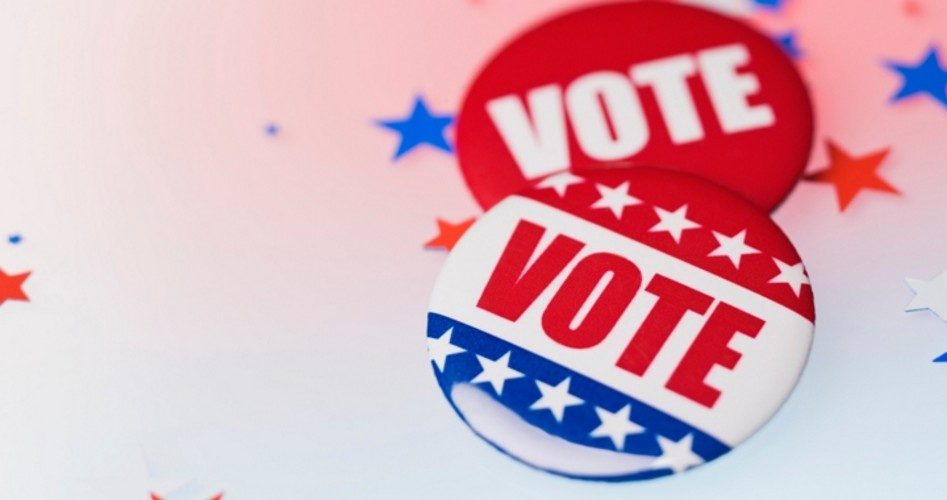
The Colorado State Senate passed a bill this week to place the state in a “compact” of states pushing to elect a U.S. president by a “National Popular Vote” — an effort to circumvent the presidential election method established in the U.S. Constitution known as the Electoral College. The bill now goes to the Colorado House of Representatives for consideration.
An actual abolition of the constitutional system of choosing a president by electoral votes would require an amendment to the U.S. Constitution. Since this would necessitate a two-thirds vote of each house of Congress, followed by ratification of three-fourths of the states, a direct termination by of the Electoral College by a constitutionally acceptable method is highly unlikely.
Because of this, advocates of changing the system created by the Founders have opted to attempt an “end-run” around the Constitution. The National Popular Vote (NPV) organization proposes the creation of a “compact” of states that all agree to cast their electoral votes to the person who receives the most popular votes nationally, even if the voters in their state actually favored another candidate. The compact would not go into effect until enough states agree to these terms to represent a majority of the electoral vote.
Several objections can be raised to choosing a president by this method of questionable constitutionality and practicality.
First, according to Article I, Section 10 of the Constitution, states are explicitly forbidden from entering into “any agreement or compact with another state” without the consent of Congress, which has not been given.
Second, in a close election, who would conduct a recount, or even a proper certification of the votes? After all, those states that are not members of the compact would have no incentive to conduct a recount. And if any state, in or out of the compact, did do a recount, could the rest of the country have confidence in any such recount? If California recounted its votes, one would expect the Democrat candidate to gain votes; in a strongly Republican state, Democrats would fear the Republican candidate would wind up with an increased vote total there.
Since the NPV would not have been created by any act of Congress, there would be no federal statute to guide any such recount.
Imagine an election has been held under NPV, and only a few weeks are left until the next president is inaugurated. After three days of counting, the Republican candidate appears to have edged the Democratic Party choice by a mere 4,123 votes nationally, out of 135 million votes. Of course, the Democrats have refused to accept the results, and some additional “absentee votes” were found in Chicago, Philadelphia, and Los Angeles, which sent the Democrat candidate surging into the lead. But just as amazingly, Republicans in several small counties in Oklahoma, Texas, Utah, Idaho, and Alabama likewise “found” additional votes, which put the Republican back on top by 895 votes. Some states refused to even conduct a recount.
Lawsuits would fill courts across the country. Riots would break out across America, and the National Guard would be called out in several states. After three weeks, it would be painfully obvious that the country could not settle the election — peacefully.
What if a state decided to renege on the agreement? Who would enforce it, especially since such a compact violates the Constitution in the first place? If a state can enter the compact, what is to stop a state from pulling out of the compact? Perhaps we would have one election in which a president is chosen by direct popular vote, then by the time of the next election, enough states would have pulled out of the agreement to throw us back to the Electoral College for the next election. And, to further complicate matters, the person who gets the most popular votes in that election wins a majority of the electoral vote.
Clearly, the proposal poses many potential pitfalls.
But perhaps the greatest pitfall is the idea that a president should be chosen by a National Popular Vote, rather than a state-by-state popular vote, through electoral votes.
Because of the problems of using a National Popular Vote, either via this extra-constitutional compact system, or even by a constitutional amendment, it seems better to keep the Electoral College.
St. George Tucker, writing in his book View of the Constitution of the United States, said little about the Electoral College method of presidential election, other than it was the Constitution’s way of providing for the “tranquility” of the election of the chief magistrate of the U.S. government. Alexander Hamilton said the way the president was to be elected under the Constitution was certainly not perfect, but it was “excellent.”
Writing in The Federalist, No. 83, Hamilton said, “The mode of appointment of the Chief Magistrate of the United States is almost the only part of the system, of any consequence, which has escaped without severe censure, or which has received the slightest mark of approbation from its opponents.” Hamilton added that the electoral method of presidential election would “afford as little opportunity as possible to tumult and disorder.”
In contrast, the National Popular Vote proposal would provide great opportunity for tumult and disorder. Hopefully, the Colorado House will defeat this scheme, and no other state will even consider it.



